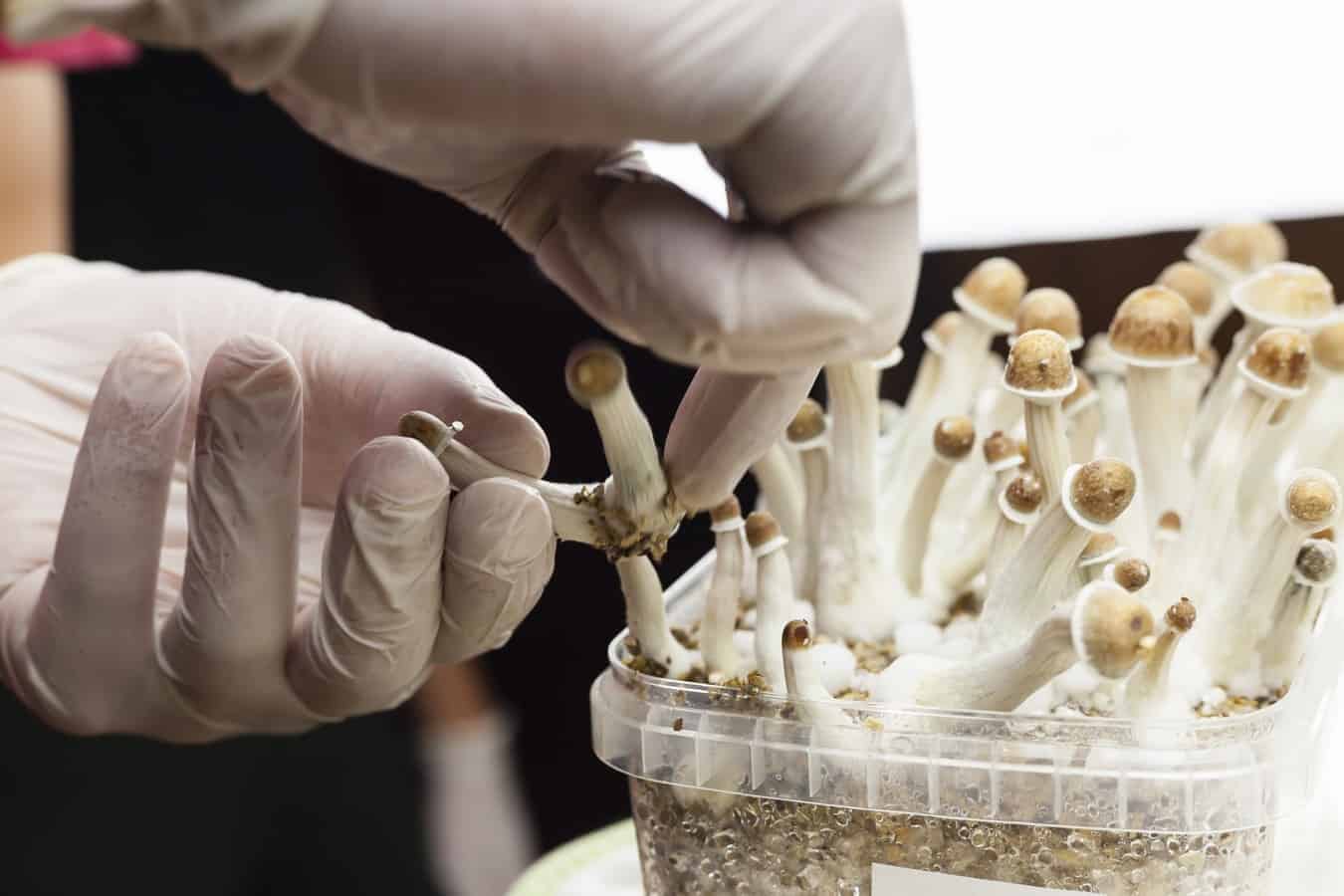
A single positive experience on a psychedelic drug may help reduce stress, depression and anxiety symptoms in Black, Indigenous and people of color whose encounters with racism have had lasting harm, a new study suggests.
The participants in the retrospective study reported that their trauma-related symptoms linked to racist acts were lowered in the 30 days after an experience with either psilocybin (Magic Mushrooms), LSD or MDMA (Ecstasy).

“Their experience with psychedelic drugs was so powerful that they could recall and report on changes in symptoms from racial trauma that they had experienced in their lives, and they remembered it having a significant reduction in their mental health problems afterward,” said Alan Davis, co-lead author of the study and an assistant professor of social work at The Ohio State University.
Overall, the study also showed that the more intensely spiritual and insightful the psychedelic experience was, the more significant the recalled decreases in trauma-related symptoms were.
A growing body of research has suggested psychedelics have a place in therapy, especially when administered in a controlled setting. What previous mental health research has generally lacked, Davis noted, is a focus on people of color and on treatment that could specifically address the trauma of chronic exposure to racism.
Davis partnered with co-lead author Monnica Williams, Canada Research Chair in Mental Health Disparities at the University of Ottawa, to conduct the research.
“Currently, there are no empirically supported treatments specifically for racial trauma. This study shows that psychedelics can be an important avenue for healing,” Williams said.
The study is published online in the journal Drugs: Education, Prevention and Policy.
The researchers recruited participants in the United States and Canada using Qualtrics survey research panels, assembling a sample of 313 people who reported they had taken a dose of a psychedelic drug in the past that they believed contributed to “relief from the challenging effects of racial discrimination.” The sample comprised adults who identified as Black, Asian, Hispanic, Native American/Indigenous Canadian, Native Hawaiian and Pacific Islander.
Once enrolled, participants completed questionnaires collecting information on their past experiences with racial trauma, psychedelic use and mental health symptoms, and were asked to recall a memorable psychedelic experience and its short-term and enduring effects. Those experiences had occurred as recently as a few months before the study and as long ago as at least 10 years earlier.
The discrimination they had encountered included unfair treatment by neighbors, teachers and bosses, false accusations of unethical behavior and physical violence. The most commonly reported issues involved feelings of severe anger about being subjected to a racist act and wanting to “tell someone off” for racist behavior, but saying nothing instead.
Researchers asked participants to recall the severity of symptoms of anxiety, depression and stress linked to exposure to racial injustice in the 30 days before and 30 days after the experience with psychedelic drugs. Considering the probability that being subjected to racism is a lifelong problem rather than a single event, the researchers also assessed symptoms characteristic of people suffering from discrimination-related post-traumatic stress disorder (PTSD).
“Not everybody experiences every form of racial trauma, but certainly people of color are experiencing a lot of these different types of discrimination on a regular basis,” said Davis, who also is an adjunct faculty member in the Johns Hopkins University Center for Psychedelic and Consciousness Research. “So in addition to depression and anxiety, we were asking whether participants had symptoms of race-based PTSD.”
Participants were also asked to report on the intensity of three common kinds of experiences people have while under the influence of psychedelic drugs: a mystical, insightful or challenging experience. A mystical experience can feel like a spiritual connection to the divine, an insightful experience increases people’s awareness and understanding about themselves, and a challenging experience relates to emotional and physical reactions such as anxiety or difficulty breathing.
All participants recalled their anxiety, depression and stress symptoms after the memorable psychedelic experience were lower than they had been before the drug use. The magnitude of the positive effects of the psychedelics influenced their reduction in symptoms.
“What this analysis showed is that a more intense mystical experience and insightful experience, and a less intense challenging experience, is what was related to mental health benefits,” Davis said.
The researchers noted in the paper that the study had limitations because the findings were based on participant recall and the entire sample of recruited research volunteers had reported benefits they associated with their psychedelic experience – meaning it cannot be assumed that psychedelics will help all people of color with racial trauma. Davis and Williams are working on proposals for clinical trials to further investigate the effects of psychedelics on mental health symptoms in specific populations, including Black, Indigenous and people of color.
“This was really the first step in exploring whether people of color are experiencing benefits of psychedelics and, in particular, looking at a relevant feature of their mental health, which is their experience of racial trauma,” Davis said. “This study helps to start that conversation with this emerging treatment paradigm.”
This work was funded by the University of Ottawa, the Canada Research Chairs Program and the National Institutes of Health. Additional co-authors included Yitong Xin of Ohio State’s College of Social Work; Nathan Sepeda of Johns Hopkins; Pamela Grigas and Sinead Sinnott of the University of Connecticut; and Angela Haeny of Yale School of Medicine.
from ScienceBlog.com https://ift.tt/3pAwgdo


No comments:
Post a Comment